What is the Best Material for Louvers?
Understanding the Purpose of Louvers
Before we compare materials, it’s important to understand what louvers are and what they do. Louvers are horizontal or vertical slats designed to permit air and light to pass through while blocking direct sunlight, rain, or noise. They can be fixed or operable and are commonly used in building facades, HVAC systems, sunshades, privacy screens, and fences.
Common Materials Used for Louvers
Several materials are used in the manufacture of louvers, including aluminium, steel, wood, plastic, and glass. Each comes with its own set of benefits and limitations:
1. Steel Louvers
Pros:
High strength and impact resistance
Suitable for heavy-duty applications
Cons:
Prone to corrosion if not treated properly
Heavier than other materials
Requires regular maintenance
2. Wood Louvers
Pros:
Natural aesthetic appeal
Eco-friendly if sourced responsibly
Cons:
Susceptible to rot, termites, and moisture damage
High maintenance required
Limited lifespan in outdoor settings
3. Plastic Louvers (PVC, Polycarbonate)
Pros:
Lightweight
Rentable
Cons:
Limited durability in extreme weather
Can become brittle or discolored over time
Less environmentally friendly
4. Glass Louvers
Pros:
Modern, sleek look
Good light transmission
Cons:
Fragile and breakable
High cost
Not ideal for ventilation
5. Aluminium Louvers
Pros:
Lightweight yet strong
Highly resistant to corrosion and rust
Low maintenance
Long lifespan
Easy to fabricate into various shapes and finishes
Cons:
Slightly higher upfront cost than some materials
When comparing all the options, aluminium consistently offers the best balance of durability, performance, aesthetics, and cost-effectiveness, making it the preferred choice for most architectural and industrial applications.
Why Aluminium is the Best Material for Louvers
Dejar’s delve deeper into the reasons why aluminium, particularly WJW Aluminium Louvers, stands out:
1. Durability and Corrosion Resistance
Aluminium naturally forms a protective oxide layer that makes it highly resistant to corrosion. This is especially important for outdoor louvers exposed to rain, humidity, and coastal air. WJW Aluminum manufacturer enhances this protection with anodizing or powder coating to increase the product's lifespan.
2. Lightweight and Strong
Aluminium’s unique properties allow it to maintain strength while being extremely lightweight. This reduces the structural load on buildings and simplifies installation.
3. Design Flexibility
Aluminium can be extruded, bent, or perforated into various forms. Whether your project demands sleek modern lines, operable blades, or customized patterns, WJW Aluminium Louvers offer versatile design options.
4. Low Maintenance
Unlike wood or steel, aluminium louvers do not require regular repainting or sealing. Occasional cleaning is usually enough to keep them looking new, making them ideal for both commercial and residential properties.
5. Eficiencia energética
Properly designed aluminium louvers can reduce solar heat gain, lower cooling costs, and support passive ventilation strategies. This contributes to the sustainability goals of green buildings and helps improve energy performance.
6. Ecológico
Aluminium is 100% recyclable without any loss of quality. WJW Aluminum manufacturer prioritizes sustainable production practices, ensuring that their WJW Aluminium Louvers are both eco-friendly and compliant with environmental regulations.
Popular Applications of WJW Aluminium Louvers
Thanks to their versatility, WJW Aluminium Louvers can be found in a wide range of applications, such as:
Building facades for shading and aesthetics
Mechanical screening and equipment enclosures
Balcony and terrace privacy screens
Fencing and boundary walls
Sun control and ventilation systems
Customization and Aesthetic Options
WJW Aluminum manufacturer offers extensive customization options to meet the unique needs of each project. Clients can choose from a variety of blade sizes, profiles, finishes (anodized, powder-coated, wood-grain), and installation systems. This level of customization ensures that every louver solution complements the architectural design while delivering peak performance.
Conclusion: Choose Aluminium for Long-Term Value
When selecting the best material for louvers, aluminium clearly comes out on top due to its durability, strength, low maintenance, and aesthetic adaptability. While other materials may offer specific benefits, none match aluminium’s all-around performance in architectural applications.
For top-tier quality and innovation, look no further than WJW Aluminium Louvers. Backed by the expertise of WJW Aluminum manufacturer, these products are engineered to meet the highest standards in modern building design. Whether you're working on a new construction or retrofitting an existing structure, aluminium louvers from WJW offer long-term value and lasting beauty.
Contact WJW Aluminum manufacturer today to discover how WJW Aluminium Louvers can elevate your next project.
















































































































